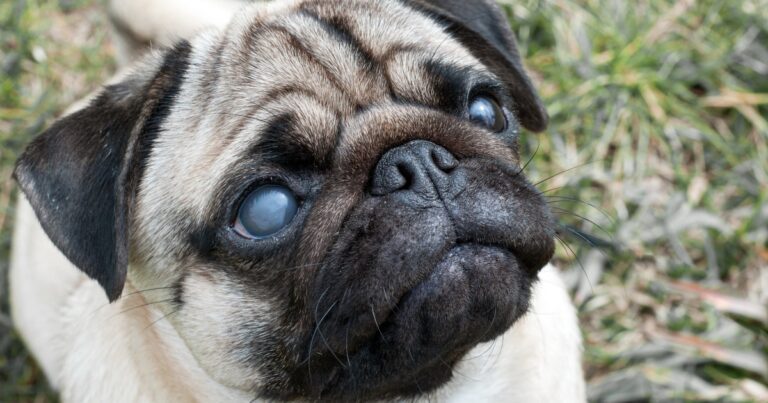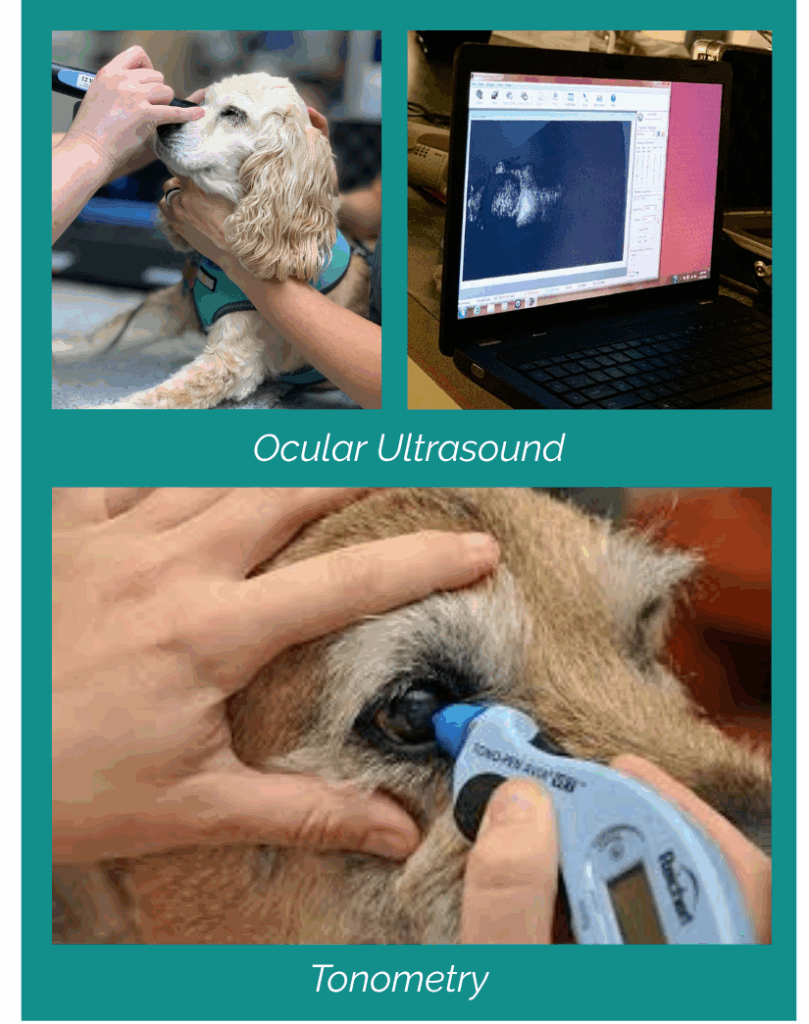Glaucoma in Pets: Diagnosis & Treatment Options

Veterinary Eye Specialists Assisting Clients & Patients for Over 25 Years
Glaucoma Treatment for Pets in Virginia, North Carolina & South Carolina
Glaucoma is a painful—but treatable—eye condition that can be found in cats, dogs, and other animals. Without proper treatment, glaucoma can lead to permanent eye damage, including complete blindness.
Contact the location nearest you today to request a make an appointment for glaucoma treatment at Animal Eye Care.
At Animal Eye Care, we offer a number of glaucoma treatments for pets in Virginia, North Carolina & South Carolina. Our board certified veterinary ophthalmologists have extensive experience in providing high-quality specialty eye care for all types of pets and animals, including dogs, cats, small pets, horses, exotic animals, and more. We can conduct a thorough diagnostic examination and help you find the right glaucoma treatment for your pet.
What Is Glaucoma?
Glaucoma is an eye condition where the pressure inside the eye (intraocular pressure or IOP) becomes too high. This can damage the optic nerve and retina, leading to vision loss and can be painful. Medical and/or surgical treatment is necessary.
Types of Glaucoma
- Primary Glaucoma: Often inherited, it is seen in breeds like Cocker Spaniels, Basset Hounds, Chows, Shiba Inus, and more.
- Secondary Glaucoma: Develops as a result of another eye problem, such as inflammation, lens luxation, intraocular tumors, or trauma.
Symptoms of Glaucoma in Cats, Dogs & Other Animals
Your pet can’t tell you when something’s wrong, so watch for these signs:
- Cloudy or bluish eye appearance
- Squinting or excessive tearing
- Redness in the white of the eye
- Eye that appears larger or bulging
- Pawing at the eye or face
- Sudden vision loss or bumping into things
- Behavior changes: lethargy, irritability

Glaucoma Treatment Options for Animals
If you’ve noticed any signs of glaucoma in your pet, or if you’ve received a glaucoma diagnosis from a veterinarian, we encourage you to reach out to Animal Eye Care to discuss treatment options.
Treatment depends on the type and severity of glaucoma. Our specialists may recommend:
Medications: To try and reduce pressure and inflammation. If glaucoma is only present in one eye, and suspected to be inherited, the other eye is typically treated preventively.
Laser or Surgical Procedures: In attempt to preserve vision or relieve pain by reducing eye pressure.
Enucleation (eye removal) or Intravitreal Gentocin Injection: Considered when the eye is blind and painful.
Lens Luxation Surgery: May be recommended if the glaucoma is due to lens shifting.
How We Diagnose Glaucoma
Our ophthalmologists use advanced diagnostic tools to quickly and accurately evaluate glaucoma, including:
Tonometry: Measures eye pressure using a quick, painless tool.
Ophthalmic Exam: A full eye exam to evaluate the eye structure.
Imaging: Advanced ocular ultrasound or gonioscopy may be recommended.
Download a printable brochure on Glaucoma: HERE
What Is Glaucoma?
Glaucoma occurs when pressure on the eye results in poor/insufficient drainage of fluid from the eye. This, in turn, can cause serious optic nerve damage, which can lead to loss of vision. Sadly, the rate of blindness for dogs with glaucoma is relatively high; however, proper glaucoma treatment can limit or reduce the risk of blindness in all types of pets.
Glaucoma is categorized as either primary or secondary glaucoma. Primary glaucoma occurs when there are no apparent underlying diseases/conditions to explain the sudden onset of glaucoma. Secondary glaucoma, on the other hand, is when glaucoma develops as a result of another eye condition, typically an infection of the eye.
Symptoms of Glaucoma in Cats, Dogs & Other Animals
Some of the most common symptoms of glaucoma in animals include:
- An eye that appears cloudy in nature
- An eyeball that is receding into the head
- Dilated pupils
- Excessive blinking/winking
- Eye redness
- Inflammation
- Pupils that don’t react to light
- Signs of high eye pressure
- Visible debris in the eye
Because glaucoma is painful, your cat, dog, or other pet may also exhibit behavioral signs that something is wrong, such as pawing at the eye, changes in eating habits, and apparent unwillingness to interact and/or play.
Glaucoma Treatment Options for Animals
If you’ve noticed any signs of glaucoma in your pet, or if you’ve received a glaucoma diagnosis from a veterinarian, we encourage you to reach out to Animal Eye Care to discuss treatment options. In most cases, treatment involves medication to reduce pressure in the eye and relieve pain. Your pet may also need to have fluid drained from his/her eye and may require a medical procedure to reduce the amount of fluid that is produced. In some long-term glaucoma cases, the eye may need to be removed.
Benefits of Glaucoma Treatment for Pets
Seeking glaucoma treatment for your pet is essential for preserving their vision and overall well-being. Timely intervention can alleviate pain, reduce intraocular pressure, and prevent irreversible damage. Regular check-ups and prompt treatment contribute to maintaining your pet’s ocular health, ensuring a higher quality of life and preventing potential blindness. Contact us to schedule an appointment for your pet today.
Contact the location near you to learn more about our glaucoma treatment options for pets in Virginia and The Carolinas.
